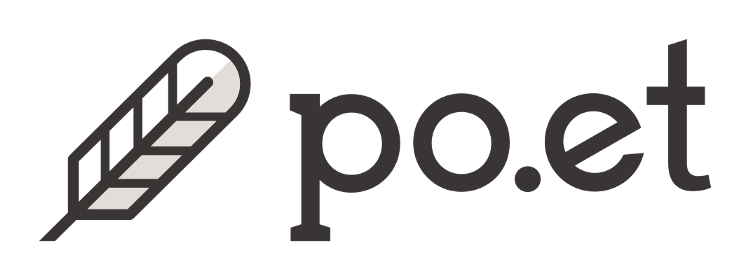In the world of content creation, publishing, and entertainment, everything lies within a centralized walled garden. Po.et aims to change that by letting creators own their content at all times. Using blockchain technology for this purpose is an interesting approach that will bring positive attention to this technology. Now is a good time to look further into the Po.et project as a whole.
What is Po.et Doing Exactly?
It is only normal that people want to focus on blockchain technology for content creators. It is very difficult to claim proper ownership of one’s creations in the era of the internet. With Po.et, that situation will come to change in the near future. Creators can generate immutable and time-stamped titles of creative works by registering their assets on the Po.et network. The metadata attribution remains safe and verifiable at all times, which makes this project well worth keeping an eye on.
How Can Po.et succeed?
Po.et is an open network which bridges the gap between creators and publishers. It makes it possible to easily discover new content or verify the authenticity of existing creations. All of this is authorized through a truly transparent system of attribution. This is partially why blockchain is so exciting, as it allows for immutable data to be recorded while still being publicly verifiable.
The creation and issuance of “copyright” licenses can be done with relative ease. By making use of cryptography, both publishers and creators can automate the licensing process without the need for intermediaries. Owners can either use a pre-existing license template or build their own terms and conditions as they see fit.
With this blockchain-based approach, people can pay a small fee to use any licensed content hosted on Po.et. These payments are fully automated, which makes the platform rather appealing to use. It is also worth noting that Po.et is flexible, and not all content recorded on this blockchain has to be shared publicly. This is a pretty interesting feature which certainly sets this blockchain project apart from the rest.
What About the Po.et Token?
As is customary these days, this blockchain network has its own native currency. Po.et’s native token can be used to join a marketplace and improve overall content discovery, stake tokens to gain a reputation on the platform, and vote on protocol improvements and dispute resolution for the Po.et ecosystem. It is evident there is a lot of potential for this token and the ecosystem as a whole, assuming content creators and publishers take notice.
What Comes Next for Po.et?
The year 2018 will herald the launch of the Po.et publisher API, known as Frost. Additionally, there will be a custom WordPress plugin allowing content creators to timestamp their work. A licensing marketplace will be introduced in April, and revenue sharing functionality will come to market in July. The immutable portfolio tool, which will be of great interest to content creators, will go live in January of 2019. E-book support will go live in 2019 as well.

